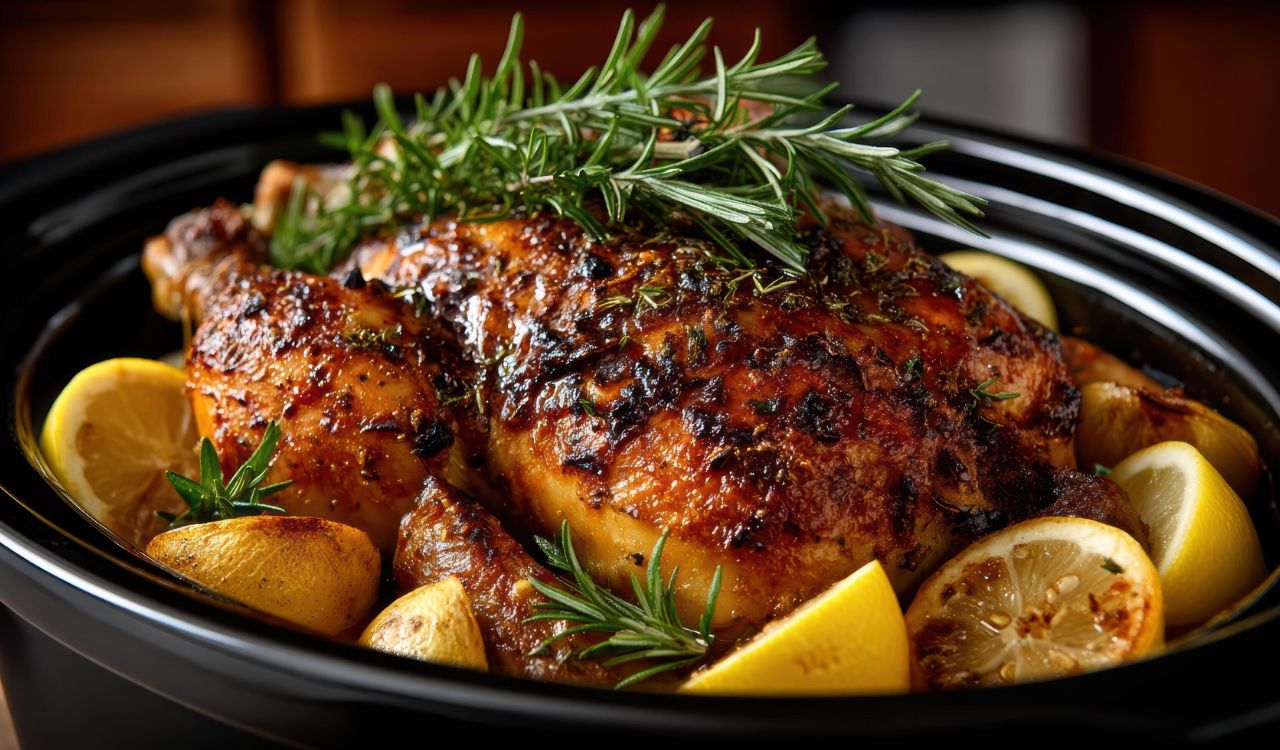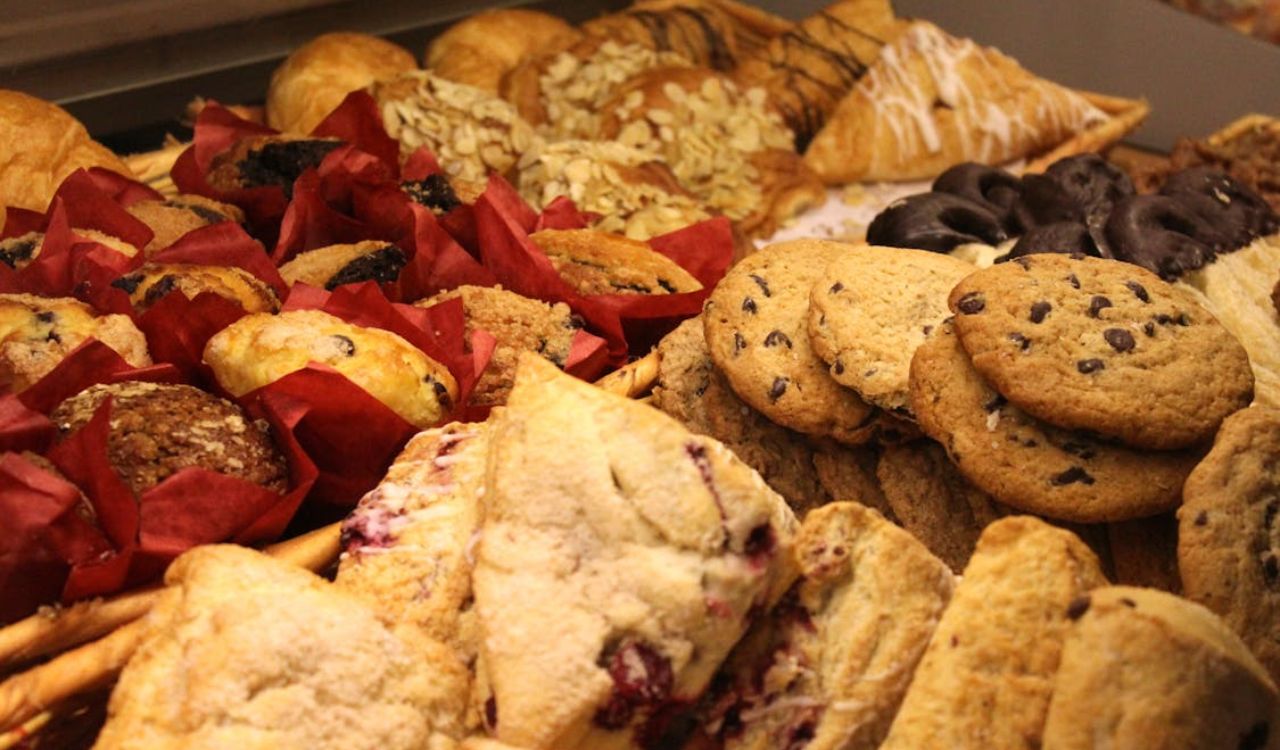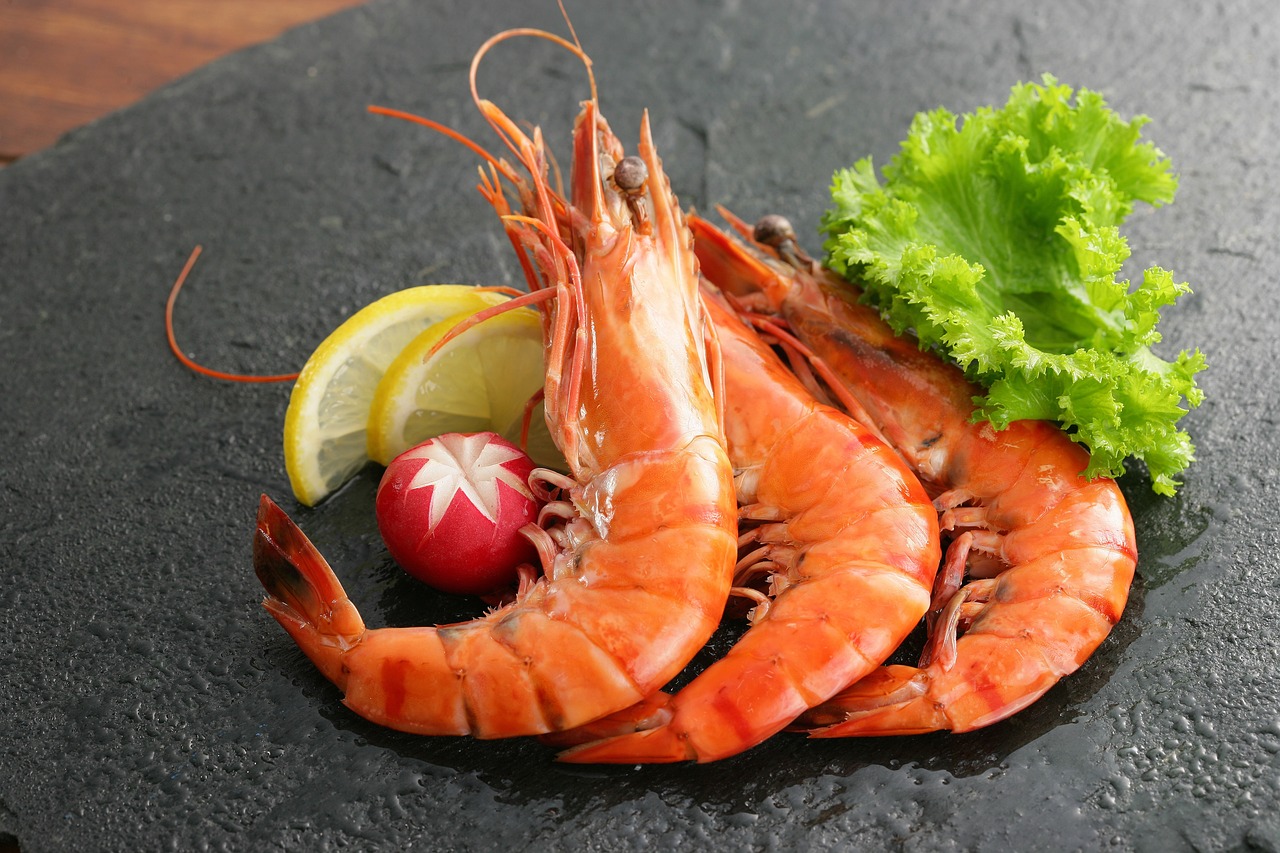Why Grandma’s Cooking Feels More Like Comfort Than Competition
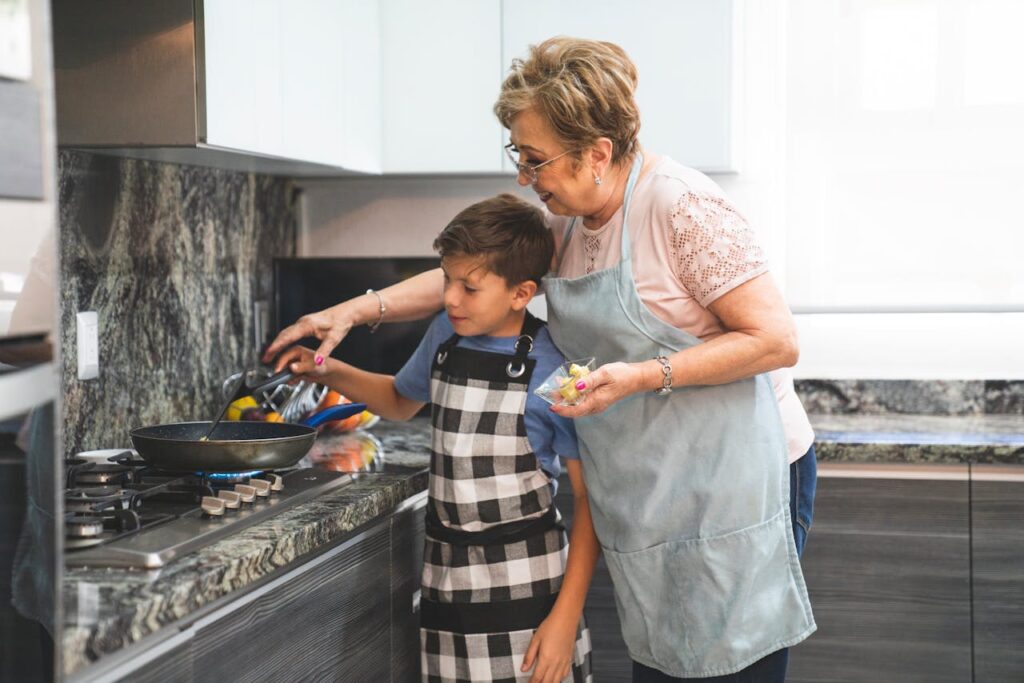
Grandma’s cooking holds a special place in family memory. The meals themselves may be simple, but the warmth behind them makes them unforgettable. No restaurant dish or cooking competition can quite recreate that feeling.
It’s not always about culinary skill. Sometimes it’s about the ritual: a favorite stew simmering all afternoon or cookies baked from a recipe that doesn’t exist on paper. Grandma’s food carries stories, not just flavors.
Even when the food isn’t technically the best, it still carries comfort. What we remember most isn’t the seasoning or the plating; it’s the care woven into every bite.
More Than Taste: The Power of Memory
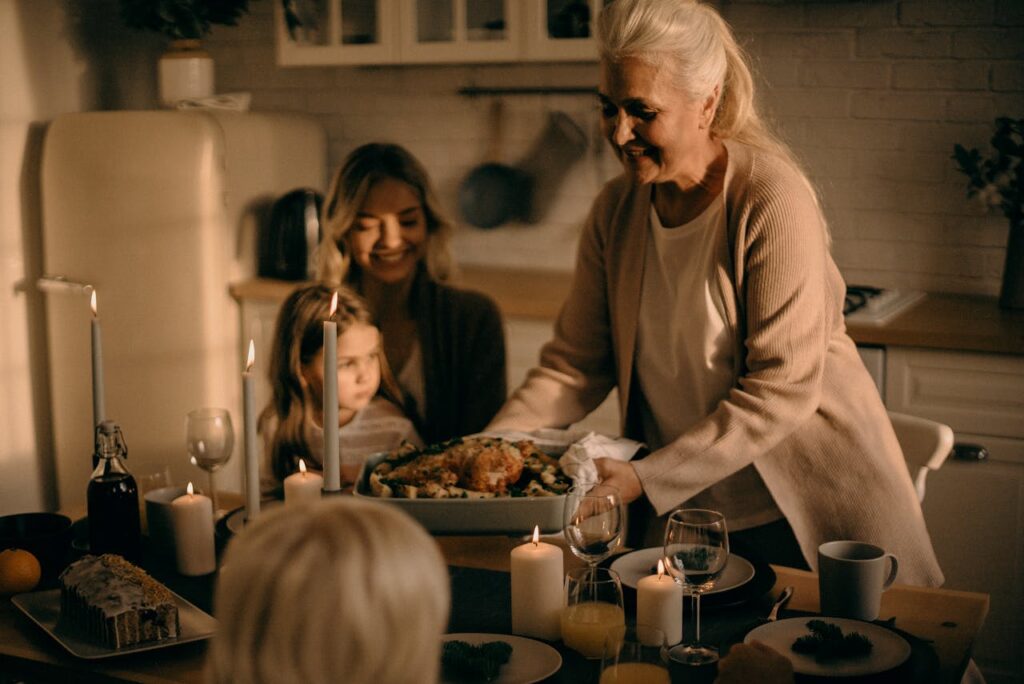
Food isn’t just fuel; it’s memory. Grandma’s cooking lingers not only because of how it tastes but because it connects us to a time when life felt slower and more secure.
Eating her meals can transport us back to crowded kitchens, laughter at the table, and the comfort of being taken care of. It’s why even plain dishes become unforgettable in our minds.
The Role of Tradition
Every dish passed down through generations carries a story. These recipes may not win contests, but they preserve culture and family history in a way restaurants cannot.
The act of cooking like grandma, using old pans, and hand-measuring ingredients adds another layer of connection. It’s not just about eating; it’s about keeping traditions alive.
Why Nostalgia Matters
Nostalgia has real psychological weight. Studies show that comfort food is often linked to memories of care and belonging. Grandma’s meals tap into that, reminding us of safety and love.
This is why those meals feel restorative even today. They aren’t just dishes-they’re edible reminders of where we come from.
Cooking Without Competition
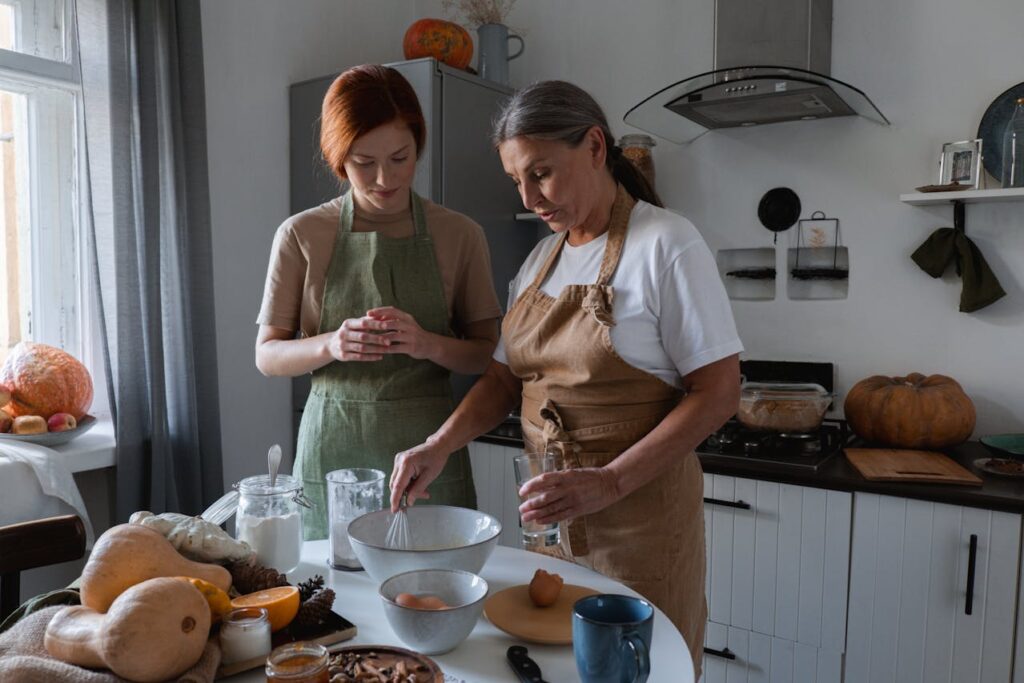
Unlike modern cooking shows or food blogs, Grandma’s kitchen wasn’t about outdoing anyone. It was about feeding people with care and consistency.
Her food didn’t need fancy plating or exotic spices. The goal was nourishment, not applause, and that’s why it felt so comforting.
The Everyday Approach
Grandma cooked out of necessity and habit, not ambition. She made the most of what she had, proving that great food doesn’t require extravagance.
Meals were reliable favorites that appeared often, and this familiarity built comfort. There was a rhythm to her cooking that soothed, even if we didn’t notice it back then.
Imperfection as Flavor
Sometimes the bread was a little dense, or the pie crust uneven. But those small imperfections added character. They reminded us that cooking wasn’t about winning, it was about sharing.
The lack of competition meant meals felt approachable, not intimidating. They carried warmth rather than pressure.
The Lasting Lessons of Grandma’s Kitchen
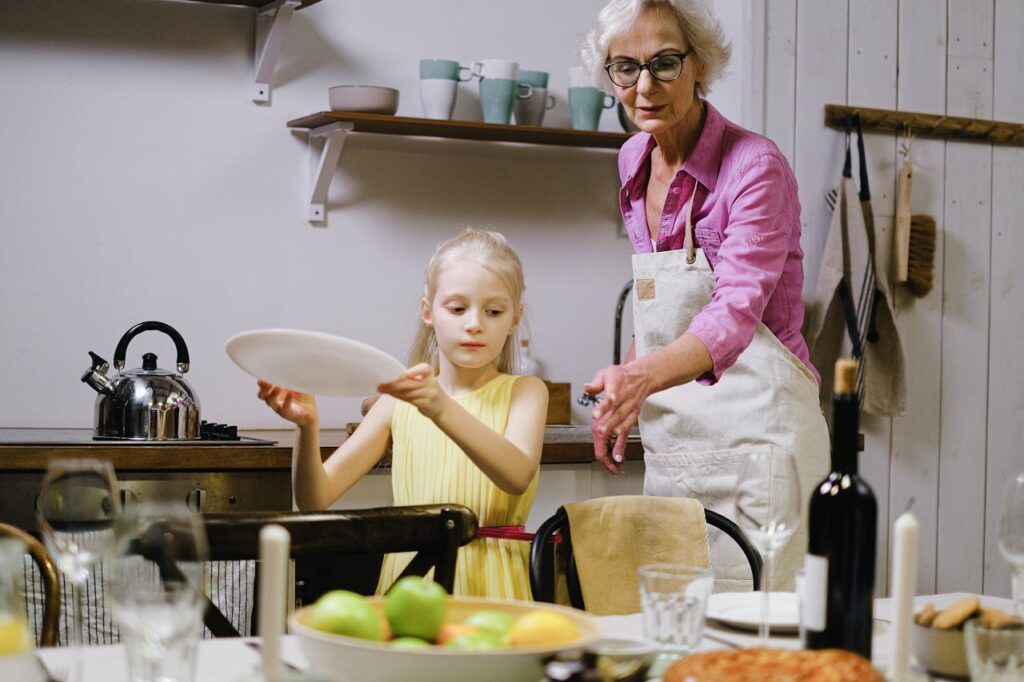
Grandma’s cooking endures because it teaches us what really matters. The lessons go beyond recipes; they shape how we view food, family, and care.
Her kitchen shows us that a good meal is less about perfection and more about presence. Food becomes meaningful when it’s tied to love and memory.
Passing Down Recipes and Values
Even if we don’t cook exactly like her, we carry forward her values: resourcefulness, patience, and the idea that food is meant to be shared.
Those recipes and habits, like never wasting leftovers or seasoning by feel, are part of her legacy. They remind us that food is culture, not just consumption.
Why It Still Matters
Grandma’s cooking lasts in our hearts because it represents comfort over competition. It isn’t about impressing strangers; it’s about nourishing loved ones. In a world that often turns meals into performance, her kitchen reminds us that the most meaningful dishes are often the simplest.


